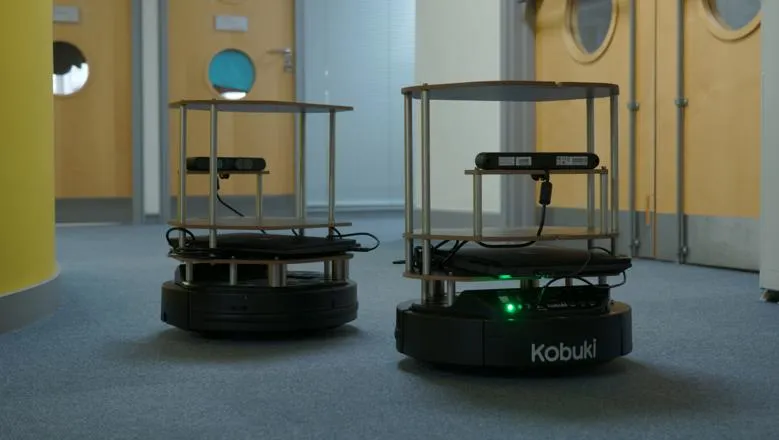14 August 2017
DASH project explores ambulance response
Researchers in robotics within the Department of Informatics in the Faculty of Natural and Mathematical Sciences have been awarded a £242K Economic & Social Research Council (ESRC) grant for a project exploring the potential impact of new data sources on emergency ambulance response.

The DASH (Data Awareness for Sending Help) project, a collaboration between Informatics, the Policy Institute at King’s in the Faculty of Social Science & Public Policy (SSPP) and the London Ambulance Service, was launched on 1 April 2017, and examines new types of data that could inform ambulance services’ computer-assisted dispatch (CAD) systems.
Ambulances aim to get to emergency medical situations quickly to provide care and save lives. Complicated decisions need to be made rapidly about which ambulance should respond to each incident, under constantly changing conditions.
Emergency incidents can occur at any time anywhere over a wide area; the locations of ambulances are constantly changing; and a range of factors like traffic and weather conditions can affect response times. Ambulance services use automated decision support to help dispatch staff make these decisions.
The volume and types of data that could provide input to CAD systems have expanded sharply in recent years. These data might support ambulance dispatchers in their efforts to respond faster and improve the prognosis for patients, for example, by incorporating predictive models of demand.
Potentially useful new data sources might include: the general population (via social media and other mobile apps); specific user segments (via in-home/wearable sensors, particularly for high-risk patient groups); urban infrastructure (via public transport monitors or embedded road sensors); or other public sector bodies (such as collaborating emergency response agencies or healthcare providers).
This ESRC grant provides an opportunity to explore the impact of big data on public policy as it applies to emergency response organisations. Ambulance services are highly responsive to public demand, putting them at the forefront of efforts to explore the opportunities and limits of efficient data-driven demand management. Their challenges represent important larger questions, including issues of public value, resourcing and privacy, which have yet to be fully considered in public debates.
DASH addresses three specific research questions:
- What are the benefits and risks for emergency service agencies, healthcare providers and the public related to linking new and emerging data sources to emergency response?
- What are the technical challenges involved in linking new and emerging data sources to CAD technologies to provide the most important benefits?
- How can practitioners and policymakers learn from our study of linking new and emerging data sources to the London Ambulance Service?
The PI, Dr Elizabeth Sklar, Reader in Computer Science, Head of the Centre for Robotics Research (CoRe) and Director of the Data Science MSc programme, spoke about the project:
“DASH allows us to explore the potentially far-reaching impact of applying state-of-the-art technologies for dynamic multi-robot routing and data-backed decision making to a real-world problem. In our lab, we have been evaluating strategies for assigning tasks to teams of robots, which is a microcosm of the problem faced every day by London Ambulance dispatchers. By integrating data mining and human-in-the-loop decision making, our approach to DASH will take advantage of cutting edge research and demonstrate a prototype solution. Building this prototype will highlight policy-related issues that currently prevent such systems from being viable."
Read more about the Department of Informatics
Read more about the Centre for Robotics Research
Read more about the Policy Institute at King’s
